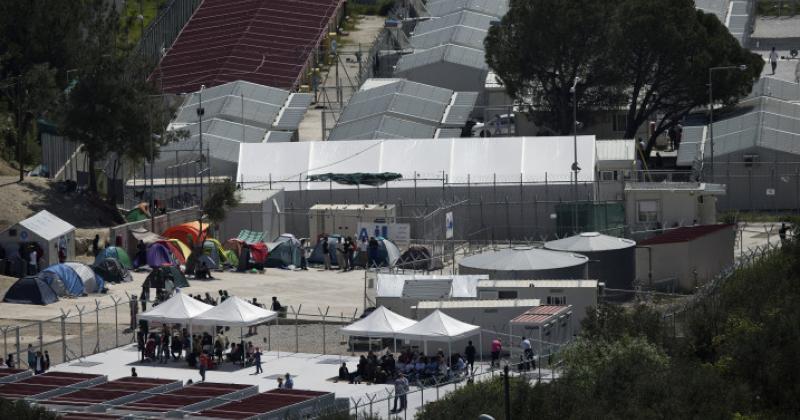Wael Haffar Habbal is 24 years old. He left his country, Syria, four years ago, after spending six months in jail for joining what at the time were peaceful protests against the government of Bashar Assad.
He got to Greece on foot almost two years ago, after walking through his country and Turkey. He took a bus across the Bosporus, and then continued walking across the border.
After five failed attempts to enter Macedonia to reach either the United Kingdom or Holland, he “accepted his destiny” and registered as a refugee in Greece. Last December, he began working as a translator in the Silver Bay Hotel, which was rented by the Catholic Charity Caritas to welcome refugees.
The hotel has 88 rooms and can host up to 215 people. Since its opening, it’s been providing not only food and shelter, but also legal assistance, internet access, and clothing.
Since finding this job, Wael, known as “Leo” for all the refugees for whom he translates, has been living in an apartment, which he rents with a group of other young refugees he’s met along the way.
When asked, he said that he wouldn’t’ be able to talk to the pope because he’d get too nervous – not because of his faith, since he’s Muslim, but because he has high hopes for the visit and Francis’ ability to change their situation in the long term.
“I wish Pope Francis had a magic wand to change things, so that the world will no longer be led by restrictive laws and by money,” Wael said.
Through his work, he’s become the voice of hundreds of refugees, who rely on his services to get their stories out, apply for asylum, and ask for help. In the near future, he hopes to be able to go back to university.
Before the Syrian revolution, he had two years of law school under his belt. His experience in Greece so far has made him discover his vocation as a translator, so he’d like to find something which allows him to continue learning languages and provide humanitarian assistance.
It’s because of people like him that Pope Francis called this a “sad trip” on the plane from Rome to the Greek island of Lesbos.
In a two-minute improvised address to the journalists travelling with him, the pontiff said that this is a journey different from all the others he’s done, because in his apostolic trips “we do so many things, we see the people, we talk to them, there’s the joy of the encounter.”
“But this is a trip marked by sadness,” he said. “This is important: it is a sad trip.
“We’re going to encounter the biggest humanitarian crisis since World War II,” Francis lamented, adding “We’re going to encounter so many people who suffer, who don’t know where to go, who’ve had to flee … we’re even going to a cemetery: the sea. So many people there, drowned.”
“I’m not saying this to bring you down, but so that your work today can transmit what’s in my heart as I do this trip,” he concluded.
